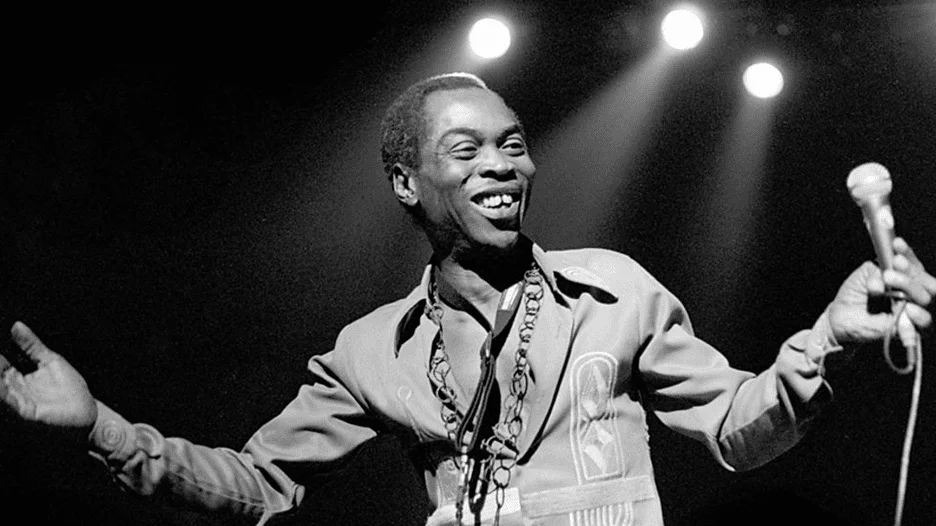By Tevin Nzei
Shayo oh, nah
Shayo oh, igbo-oh
It could be laughable a decade, or so ago, for one to imagine Afrobeat on the global scene. Think of the introductory punch in Burna Boy’s Last Last. But this predates the rise of Burna Boy to global stardom. The foundation was laid thoroughly well by one of Africa’s best talents who made Afrobeat what it is. A phenomenon that is catching on in every corner of the world. When Afrobeat drops, you can’t help but move some part(s) of your body; for the good dancers, they move their body, the average dancer will tap their feet and then for you who doesn’t know how to dance, you just bop your head. Actualise.
But before we commence on his story, we will take a slight detour to the continent’s history for perspective.
*****
Way before the colonialists set foot on the continent, there was already a vibrant culture in the so-called ‘dark continent.’ Childbirth was celebrated, as was circumcision, marriage and death. Every occasion was marked by song and dance. There were wars fought against neighbours, there were wrestling matches amongst the best of the best between different communities. There were market days and long-distance trade mostly done through the barter system of trade.
Most of the occasions highlighted were marked with song, proper African dancing and drinking of traditional brews. Life happened and people knew people. There was a sacredness to life. And then the colonists sailed their ships from lands yonder and arrived at a continent that was at peace with itself and its culture. Open to new ideas, yes, but at peace with adopting them at her own good time and accord.
But then the colonialists arrived and everything changed. They wanted to bring ‘light’ to the people whom they deemed to be dark, both in deed and in thought. Civilization. “The uppity.” Of course, disguised in their bringing a better life was greed. They eventually “convinced” the people that their religion, language, education, medicine and many other aspects of their life were wrong and backwards. The psychological warfare was well won before all else had started. This was before the use of shear force for the radicals who resisted this New World Order.
And then the brute force kicked in – to make everyone align. If persuasion and psychological manipulation didn’t charm you enough, then the kicking, the caning, the maiming, and savage attacks would surely work on you. Later on, it occurred that if by unfortunate circumstances you were strong and well-built, you would be sold off abroad to work as a slave. And the journey was a merciless one. If you were lucky, you’d make it alive to the other side. The beastly conditions that you’d be subjected to made many throw themselves into the high seas and end the unending torture. Those who made it to the other side wished they had taken the courage to dive into the seas before the oyinbo got wind of the developments and started chaining people to avoid losing the ‘valuables’ to the sea. And the people who were left behind had it just as rough as the ones who were shipped off.
*****
Against this backdrop, from how Africa was before the colonialists came to how they plundered it and left it to the “elites” whom they had trained in their ways, the greatest African musician was born on October 15th, 1938. If I knew better, I would infer that mercury was in retrograde but I don’t know any better. His mother being a political activist played a major role in what he would sing about later in life as his music was consistent with the social ills perpetrated against the common man.
Born Ofufela Olusegun Oludotun Ransome-Kuti in Ogun State, Nigeria into an upper middle-class family, Fela was encouraged by his father, Reverend Israel Ransome-Kuti, to start playing the piano and percussion as he believed music was an essential part of a good education. But just like any African parent, Fela Kuti’s parents still wanted their child to become a doctor. They wanted someone who was respected in the community. This was not much of a big expectation, as Wole Soyinka, who would go on to become the first African to win the Nobel Prize Literature, was Fela’s cousin and both his brothers, Beko Ransome Kuti and Olikoye Ransome Kuti went ahead to become doctors.
At the age of 20, Fela was sent to London to study medicine but he stayed true to his muse. As he was quoted later in his life, “ Music is a spiritual thing. You don’t play music. If you play with music you will die young. When the higher forces give you the gift of musicianship, it must be well used for the good of humanity.” And that quote justified how and why he was the renegade he was as he stayed true to his totem.
A year later, having arrived in London in 1959, Fela formed his first band and named it Fela-Ransome Kuti and His Highlife Rakers. They recorded the first album through an independent African and Caribbean music label. Fela would learn from the different compositions through the years. At this stage though, like any young musician, his music was mostly about love and sweet nothings. He disbanded the band a year later and formed the Koola Lobitos which was composed of West African and Caribbean musicians.
Through his years of study in London nothing much musically occurred as he was still in his formative stage. He married his first wife, Remi who bore him his first daughter and his renowned son Femi Kuti. In 1962 Fela graduated from Trinity College where he studied classical music.
In the period leading to Nigeria’s independence from the British, Fela went back home. He reformed the Koola Lobitos and also worked for the Nigerian Broadcasting Corporation as a producer. By and by, the band became famous and they released their first album.
Fela and his band later embarked on an African tour, including a trip to Ghana in 1967 and this is where the Afrobeat genre was born.
Fela The Composer
Fela has some of the most memorable quotes which had congruence with his way of life and his music. He once stated, “Music is supposed to have an effect. If you’re playing music and people don’t feel something. That’s what African music is about. When you hear something, you must move. I want to move people to dance, but also to think. Music wants to dictate a better life, against a bad life. When you’re listening to something that depicts having a better life, and you’re not having a better life, it must have an effect on you.”
And that was what Fela’s composition was about. Just like the traditional African music that was there before the pilferers showed up, his music was moving and took its time. There was no hint of any rush. The layers came in slowly. He would start with the trumpets and the piano and skillfully add other instruments. The electric guitar would be added, repeating a riff or groove. Then there would be the West African chants and rhythms. And the writer of this article being a fan of drums, credit has to go to Tony Allen and later also to Ginger Baker who simply created magic together with Fela. Just go listen to Egbe Mi O and Black Man’s Cry and you will get to hear the two geniuses in Fela and Ginger Baker coming together to move you.
The fact is, Fela was and arguably is still the best musician Africa has ever produced. Of course, the statement is fogged by the love the writer has for him. Allow him to explain. Having been influenced by the music he heard while in London and the jazz and funk from America, the Caribbean music, and the Ghanaian highlife, Fela used all this knowledge to be the foundation of the Afrobeat. While most bands had one baritone saxophonist, Fela used two and this was repeated for the guitar as well where there would be two or three guitarists. There would be the introduction of the base rhythm of drums, shekere and horn. The keyboard and trumpets also came in. Of course the composition varies from song to song.
What remained constant was the length of the song. As highlighted initially, Fela was in no rush. He wanted to make you feel and make you move. The compositions took time and they were all lovely. While most European and Eurocentric music would be between 3 to 5 minutes, most of Fela’s songs last between 12 minutes to 30 minutes. And they are great, they want to make you move.
To be Continued…
Disclaimer
The opinions presented herein are solely those of the author(s) and do not necessarily reflect the views of CSSR-A. While efforts are made to ensure the accuracy of the information provided, no liability is assumed for any loss or damage resulting from reliance on the contents of this article.

